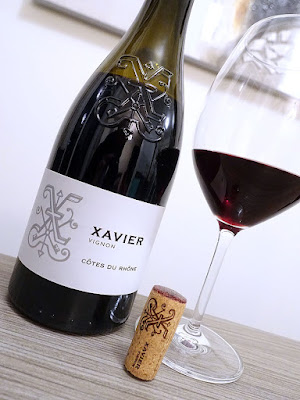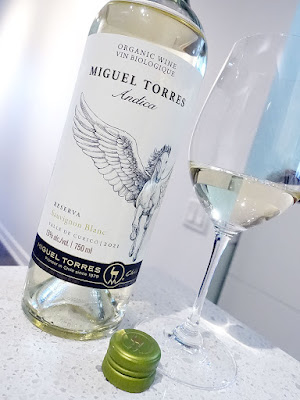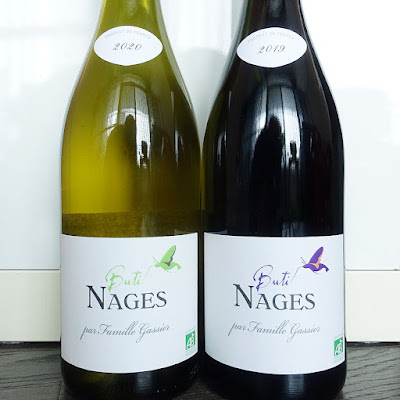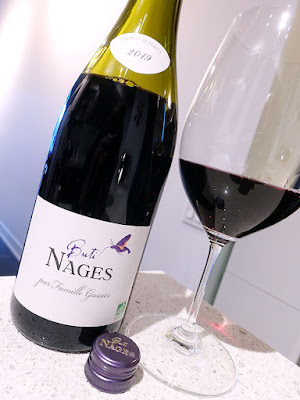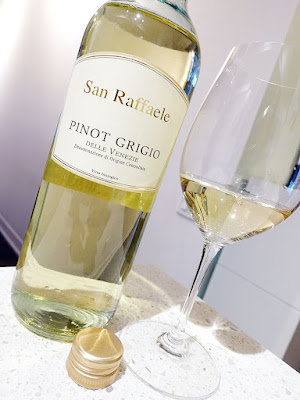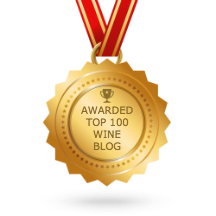white wine review is an organic and consistently delicious white wine from Marche. It arrived at the LCBO over the weekend as part of the recent LCBO VINTAGES Release.
It is produced by Umani Ronchi, a family-run winery that was established in 1957 when Gino Umani Ronchi set up a small farm at Cupramontana, the heart of Verdicchio Classico country in Marche. In 1968, Roberto Bianchi and his son-in-law Massimo Bernetti acquired the property and brought new energy to the estate's production and improved the quality of the wines. Massimo soon expanded the estate's area under vine to 210 hectares, most of which was nestled between the hills and sea, along the Adriatic coast on the eastern side of central Italy in Marche and Abruzzo. Massimo was joined by his son, Michele, in the 1990s and together with input from university research centres, they began exploring advanced vine cultivation and winemaking techniques, while also identifying the best grape-growing sites.
Today, Michele and his technical team continue to fine-tune all of their wines, resulting in a range of new products, while paying great attention to existing wines. He has partnered with Giacomo Tachis, a skilled winemaker known for celebrated wines like the Solaia and Sassicaia. Umani Ronchi continues its innovative spirit with all of the vineyards are farmed organically, by technical choice, because organic means quality. Umani Ronchi is driven by strong ethics and respects the environment, with sustainability at top of mind in every aspect of the business.
This white wine is crafted with 100% Verdicchio that was grown on the hills of Verdicchio dei Castelli di Jesi. The vineyards are between 8 to 30 years old and situated between 200 and 350 metres above sea level, on opposite sides of the Esino Valley, while the soils go back to pleiocene-pleistocene formations and characterized by being very deep, medium-calcareous clay loams. The grapes were hand-harvested with particular attention paid to determine the right moment to harvest, when there was the best balance between sugar content, phenolic ripening, and acidity. It was vinified by lightly pressing the grapes and undergoing fermentation in temperature-controlled steel tanks. After ageing the wine on its own lees for about 5 months, it was then aged in bottle for a few months prior to release.
Looking through my notes, I had actually tasted this particular vintage a couple of times in the second half of last year, and both times it was delicious, with consistent notes. The 2019 Casal di Serra Verdicchio dei Castelli di Jesi Classico Superiore which I tasted a couple of years ago was also lovely! Let's see how this 2020 Verdicchio from Marche is tasting in early 2023...
Switched from screw cap to Nomacorc for this vintage. The medium-high intensity nose is faintly perfumed with attractive ripe lemon-lime citrus, melon, and peach aromas with whiffs of florality. There good weight and concentration on the dry, crunchy, medium-full bodied palate with deliciously ripe lemon-lime, apple, melon, white floral, and leesy flavours in a lightly honeyed profile. Acids are juicy, vibrant, and well-balanced. Nicely textured on the mid-palate, while leesy mineral notes linger on the long, succulent finish. Highly recommended buy! Score: 89 pts
Other lovely wines by Umani Ronchi are available at the LCBO and through their Agent - Noble Estates Wines & Spirits.
It is produced by Umani Ronchi, a family-run winery that was established in 1957 when Gino Umani Ronchi set up a small farm at Cupramontana, the heart of Verdicchio Classico country in Marche. In 1968, Roberto Bianchi and his son-in-law Massimo Bernetti acquired the property and brought new energy to the estate's production and improved the quality of the wines. Massimo soon expanded the estate's area under vine to 210 hectares, most of which was nestled between the hills and sea, along the Adriatic coast on the eastern side of central Italy in Marche and Abruzzo. Massimo was joined by his son, Michele, in the 1990s and together with input from university research centres, they began exploring advanced vine cultivation and winemaking techniques, while also identifying the best grape-growing sites.
Today, Michele and his technical team continue to fine-tune all of their wines, resulting in a range of new products, while paying great attention to existing wines. He has partnered with Giacomo Tachis, a skilled winemaker known for celebrated wines like the Solaia and Sassicaia. Umani Ronchi continues its innovative spirit with all of the vineyards are farmed organically, by technical choice, because organic means quality. Umani Ronchi is driven by strong ethics and respects the environment, with sustainability at top of mind in every aspect of the business.
This white wine is crafted with 100% Verdicchio that was grown on the hills of Verdicchio dei Castelli di Jesi. The vineyards are between 8 to 30 years old and situated between 200 and 350 metres above sea level, on opposite sides of the Esino Valley, while the soils go back to pleiocene-pleistocene formations and characterized by being very deep, medium-calcareous clay loams. The grapes were hand-harvested with particular attention paid to determine the right moment to harvest, when there was the best balance between sugar content, phenolic ripening, and acidity. It was vinified by lightly pressing the grapes and undergoing fermentation in temperature-controlled steel tanks. After ageing the wine on its own lees for about 5 months, it was then aged in bottle for a few months prior to release.
Looking through my notes, I had actually tasted this particular vintage a couple of times in the second half of last year, and both times it was delicious, with consistent notes. The 2019 Casal di Serra Verdicchio dei Castelli di Jesi Classico Superiore which I tasted a couple of years ago was also lovely! Let's see how this 2020 Verdicchio from Marche is tasting in early 2023...
Tasting Note:
CASAL DI SERRA VERDICCHIO DEI CASTELLI DI JESI CLASSICO SUPERIORE 2020 - DOCG, Marche, Italy (#268169) (XD) - $19.95Switched from screw cap to Nomacorc for this vintage. The medium-high intensity nose is faintly perfumed with attractive ripe lemon-lime citrus, melon, and peach aromas with whiffs of florality. There good weight and concentration on the dry, crunchy, medium-full bodied palate with deliciously ripe lemon-lime, apple, melon, white floral, and leesy flavours in a lightly honeyed profile. Acids are juicy, vibrant, and well-balanced. Nicely textured on the mid-palate, while leesy mineral notes linger on the long, succulent finish. Highly recommended buy! Score: 89 pts
Other lovely wines by Umani Ronchi are available at the LCBO and through their Agent - Noble Estates Wines & Spirits.



